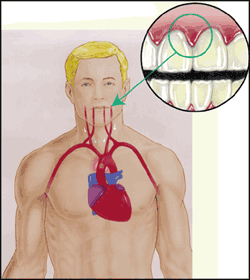Hi Everyone!
Dr.Christakos wrote a very informative blog this week on fluoride safety, we hope you find it informative!
Over the last few years, there has been a rising concern regarding the safety of fluoride in our water supply. Despite the mountain of evidence that shows the increased benefits of fluoridated water, there is a population who believe that fluoride has no effect on teeth and that in fact it is unsafe and is doing more harm than good.
Dental caries (tooth cavity or decay) is classified as a disease. It is an infection, bacterial in origin, that causes demineralization and destruction of the hard tissues of the teeth. It is a result of the production of acid by bacterial fermentation of food debris accumulated on the tooth surface. If demineralization exceeds saliva and other remineralization factors such as calcium and fluoridated toothpastes and water, these, once hard tissues progressively break down, producing dental caries (cavities or holes in the teeth). Did you know that, caries remain one of the most common diseases throughout the world!
One way to help slow down cavities/decay is by using fluoride. Fluoride helps because, when teeth are growing, it mixes with tooth enamel —creating that hard coating on your teeth. This prevents tooth decay. Other benefits of fluoride are that it can help even after your teeth are formed. It works with saliva to protect tooth enamel from plaque and sugars. By one using fluoride toothpaste and drinking fluoridated water, everyone can enjoy some cavity protection.
Adding fluoride in water has greatly reduced the amount of cavities in children. In fact, the U.S. Centers for Disease Control has listed water fluoridation as one of the ten great public health achievements of the 20th century!
I have seen first hand the effects of the lack of fluoride in water in a community. My sister lives in a community that does not have water fluoridation. Her eldest child developed many cavities and was at the dentist often. I mentioned to my sister that there was no fluoride in the water where she lived. I suggested that she add the fluoride herself (tablets easily available at pharmacies). As a result the cavities stopped, and the next two siblings are cavity free.
I may also mention I worked in a community where there was no fluoride in the water. It was astonishing to see the number of cavities in the children that are treated. There was a large number of cavities in children in this community, as compared to the children in Toronto. The discrepancy is attributed to the lack of fluoride in the water.
If there is no fluoride in your drinking water, you can safely add fluoride tablets, which are easily found at any pharmacy. Please feel free to visit our office to assist you if you have any questions!
To help you see if your community has fluoridated water in Ontario, please check this list:
Please feel free to read about the various organizations and their positions on water fluoridation:
Have a great weekend!
Museum Dental


